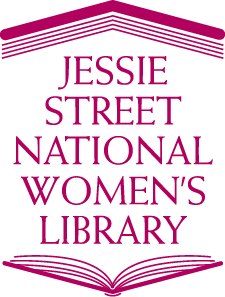Tapestry series no. 40
Contributed by Len Beckett
My mother was a member of a courageous generation of women who welcomed their husbands back from WW1, established their homes, bore their children, endured the Depression and then saw their sons off to WW2.
In her early teens, she was indentured to a firm of drapers and milliners to train in the business of drapery at Great Yarmouth, where she met Dad who was apprenticed to a carpenter. A romance flourished in the Norwich- Great Yarmouth area, interrupted in 1913 when Dad, now a tradesman carpenter, migrated to Sydney for the building boom. Undeterred, Mum followed: She was the only child of her widowed mother and the two women settled in Mossman where Dad was employed.
Within a few months war broke out (1914) and Dad promptly joined the AIF, married Mum at St Clement’s, Mossman, on 27th February 1915, sailed overseas with the 1st battalion and lost his right arm at Gallipoli in May 1915.
Mum was faced with prospect of a husband in need of repatriation, his trade prospects now nil, and her widowed mother now depending on them.
A government scheme of placing returned soldiers (who were unfit for further military service) on primary production, resulted in my parents being allocated a five-acre poultry farm at Bankstown Soldier’s settlement.
Mum perforce had to become an instant substitute for Dad’s missing right arm. Always under his instructions, she was able to lead the horse along straight furrow lines awhile Dad manhandled the plough. She turned the handle of the chaff cutter for him when Dad had green corn or Lucerne for chook food. She milked the cow; she harnessed up the horse, and drove the sulky to Bankstown when essential trips were required. Guided by Dad, she tended the incubators, and the brooder furnace, watching day old chicks slowly growing into pullets. She quickly learned to pluck poultry and skin rabbits so that we ate at times when farm income dropped to zero. That was my mum.
My very first early childhood picture of her is clearly implanted in my mind. She had a wooden yoke across her shoulders and suspended on the attached chains she carried two kerosene tin buckets of chook feed down to the laying pens, returning with buckets of eggs or firewood. Alternatively she carried water for the drinking troughs and never ever had an empty bucket on the forward or return journey. No trip was ever wasted. She had her growing family well disciplined. The woodheap was strategically placed outside the door of the dunny, and everyone who went down there was required to carry firewood back to the house.
Every Monday morning Mum did the washing, using the wood fuelled copper and mangle, and organised her mother on the flat irons, heated on the fuel stove in the kitchen.
Every Friday night she saw that we had a bath and we were dosed with senna tea before she put a scurf comb through our hair. Her chores and routines seemed to last from daylight to dark, and she always visited us in our beds to say prayers and say goodnight and blow out the candle.
There were five children eventually and we all had our daily jobs as we grew and became capable of relieving Mother and helping Dad.
She had three sons, and her four menfolk added to her troubles. She loved Dad very much. He was a strong character, very independent, and they teamed well together.
Some tasks were beyond the scope of Dad’s left hand and she cared for him. Her eldest son was a chronic stutterer, and she worried for him. Her second son contracted infantile paralysis and she prayed for him. The youngest son died when his clothes caught alight and she mourned for him.
The infantile paralysis, once it was diagnosed, required a weekly trip to Camperdown Children’s hospital. So Mum carried my younger brother from Central Station to the George Street trams and alighted at Layton Street then carried him to the hospital for massage of his legs, over several years. Once having got off, she slipped on the tramline and woke up in a nearby chemists shop. Her first thought was of the boy, but he had been looked at first, and was stable. So mum stood up, crammed her now crushed straw hat with broken brim back on, said, “Well, we can’t keep the nurse waiting”, thanked her rescuers, and set off along Layton Street with the child astride her hip. That was our Mum.
In an already busy life, she found time (for relaxation she said) to fit in duties of Sunday School Superintendent, church organist, membership of Mothers’ Union, Ladies Guild, the Parents’ and Citizens’ Association and the well named Soldiers Mothers Wives and Relatives Victory Association.
When Dad suffered a ploughing accident on the farm, the authorities moved him to the little PO store and Commonwealth Bank branch, recently established. Our Mum immediately abandoned the mantle of poultry farmer and became assistant postmistress, sales lady for fancy goods, drapery, fireworks, as required, and window dresser for Christmas stocks. Dad did the groceries, Post Office and banking business. Mum soon became adept too, relieving Dad of long shop hours and making fortnightly buying forays to the city wholesale warehouse. Though always trusting, the Depression years gave her some bitter experiences, which taught her where credit should be allowed. My parents suffered some heavy losses.
Gradually Dad’s health declined and he was registered TPI. In 1938 they finally gave up the PO store and moved to the Brighton le Sands area.
Then WW2 broke out and Mum having lost her own mother some years before, became a wartime housewife. She did charity work and played the church organ, saw her three eldest children married, and by the end of the war there were grandchildren to love and care for.
In 1956 Dad died of heart failure after 41 years of happy marriage to Mum. She died tragically in a house fire in 1958. The cemetery at St Saviours Church, Punchbowl, is the last resting place for our Mum, together with her husband, her youngest son and her mother.
Her elder daughter was the firstborn child, who consequently bore the load of housework while our Mum was required for outside farm work and later on for the P.O store duty.
The younger daughter was unmarried and stayed on in the family home right up to the demise of our parents. As we three older ones were all married and had our own house, we saw to it that ‘little sister’ received the family cottage.
Our Mum gave us a strong family background and all four surviving children had fulfilling lives and achieved successful commercial careers.

